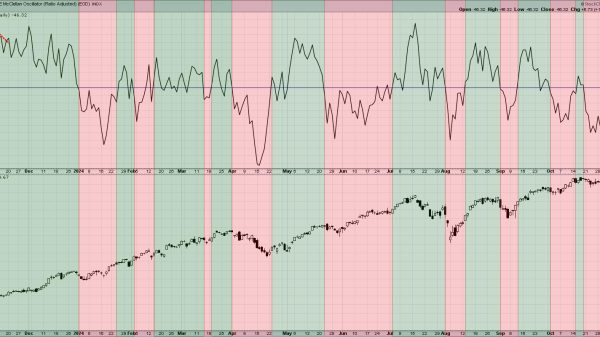Recorded by the Mises Institute in the mid-1980s, The Mises Report provided radio commentary from leading non-interventionists, economists, and political scientists. In this program, we present another part of “Ten Great Economic Myths”. This material was prepared by Murray N. Rothbard.
In recent decades we always have had federal deficits. The invariable response of the party out of power, whichever it may be, is to denounce those deficits as being the cause of our chronic inflation. And the invariable response of whatever party is in power has been to claim that deficits have nothing to do with inflation. Both opposing statements are myths.
Deficits mean that the federal government is spending more than it is taking in in taxes. Those deficits can be financed in two ways. If they are financed by selling Treasury bonds to the public, then the deficits are not inflationary. No new money is created; people and institutions simply draw down their bank deposits to pay for the bonds, and the Treasury spends that money. Money has simply been transferred from the public to the Treasury, and then the money is spent on other members of the public.
On the other hand, the deficit may be financed by selling bonds to the banking system. If that occurs, the banks create new money by creating new bank deposits and using them to buy the bonds. The new money, in the form of bank deposits, is then spent by the Treasury, and thereby enters permanently into the spending stream of the economy, raising prices and causing inflation. By a complex process, the Federal Reserve enables the banks to create the new money by generating bank reserves of one-tenth that amount. Thus, if banks are to buy $100 billion of new bonds to finance the deficit, the Fed buys approximately $10 billion of old treasury bonds. This purchase increases bank reserves by $10 billion, allowing the banks to pyramid the creation of new bank deposits or money by ten times that amount. In short, the government and the banking system it controls in effect “print” new money to pay for the federal deficit.
Thus, deficits are inflationary to the extent that they are financed by the banking system; they are not inflationary to the extent they are underwritten by the public.
Some policymakers point to the 1982–83 period, when deficits were accelerating and inflation was abating, as a statistical “proof” that deficits and inflation have no relation to each other. This is no proof at all. General price changes are determined by two factors: the supply of, and the demand for, money. During 1982–83 the Fed created new money at a very high rate, approximately at 15 percent per annum. Much of this went to finance the expanding deficit. But on the other hand, the severe depression of those two years increased the demand for money (i.e., lowered the desire to spend money on goods), in response to the severe business losses. This temporarily compensating increase in the demand for money does not make deficits any the less inflationary. In fact, as recovery proceeds, spending will pick up and the demand for money will fall, and the spending of the new money will accelerate inflation.
For more episodes, visit Mises.org/MisesReport.






















